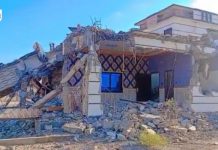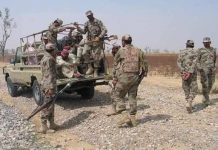Indian and Chinese military commanders held talks for the second day on Tuesday following the mounting tensions on the disputed Himalayan border in Ladakh.
The details of the discussions were not immediately disclosed. Both sides have been holding dialogues to negotiate a Chinese withdrawal since May when the Peoples Liberation Army, the army of the ruling Chinese Communist Party, troops transgressed into the Indian soil, leading to a confrontation that killed multiple Indian and probably three dozen Chinese soldiers in June.
Both rivals have amassed thousands of troops and artillery on their respective sides of the border. On Monday, India leveled allegations on China, saying that the Chinese troops engaged in ‘provocative movements’ on the disputed border on Saturday night. The Indian foreign ministry claimed that the Indian soldiers thwarted the Chinese attempts of provocation.
Defense analysts have claimed that the situation is “extremely volatile” in the region, as the both nuclear-armed countries confront each other. They say that India is trying a mutual de-escalation, disengagement and withdrawal of the troops on both sides of the border. China has been unwilling to de-escalate, prompting India to heavily man the border due to the possibility of a confrontation.
Both China and India have withhold information about the recent escalation of tensions in the disputed region, but the media in both countries have been reporting the incidents extensively, albeit aggressively and prejudicially. Chinese media, which is strictly under the government control, has blamed India for the standoff on the border. In an aggressive editorial, Global Times said that India “should be under no illusion that the Chinese are not willing and ready to take on India.”
The state media has also taken a survey with its readers in which a vast majority blamed India for the mounting tensions and almost 90% endorsed military action.
India has also manned its eastern border with China, raising the prospects of a military face-off. Indian military officials have ruled out any impending confrontation. Officials in Anjaw, a town in Arunchal Pradesh state which China also claims, have confirmed the stationing of several Army battalions in the region, but maintained that there are no reports of incursions.
Lieutenant Colonel Harsh Vardhan Pande, an Indian military spokesperson, told media that the arrival of the troops is a part of a regular rotation; there is no need of concern. “Basically, it’s units changing. That’s happening as it happens every time, nothing much,” Pande said.






























